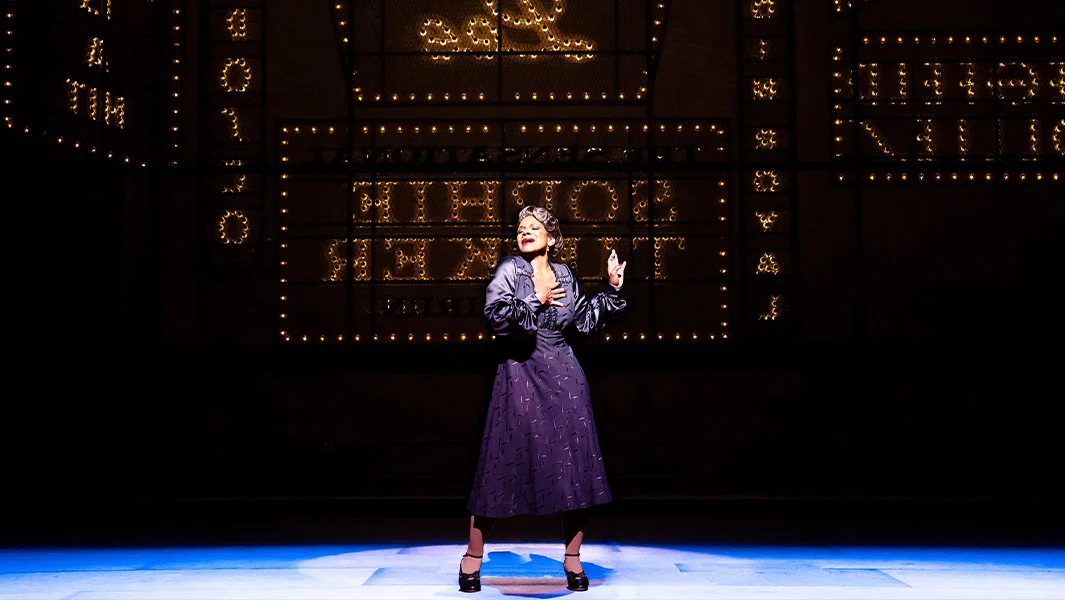
Rose
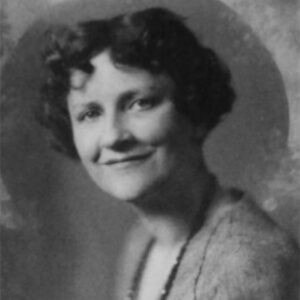
In the show:
Charming, ruthless and ambitious, “but nice, she ain’t,” Rose is the embodiment of the classic stage mother. Determined to use her daughters June and Louise as a vehicle for familial success and stardom, Rose clings to the dying vaudeville scene and the childhood of her growing daughters with a tenacity bordering on obsession. But this obsession is tempered by a devotion and charm that Rose wields with precision to promote her daughters and the act. Demanding the focus of every scene she’s in, Rose is an unstoppable force of charisma and will. As Rose’s world begins to crumble around her, she has one of the most famous breakdowns in the musical theatre canon. A prized role inhabited by a host of Broadway icons – including Ethel Merman, Angela Lansbury, Tyne Daly, Bette Midler, Patti LuPone, Bernadette Peters and Audra McDonald – Rose knows exactly how to “make ’em beg for more.”
In real life:
Rose Thompson Hovick (1890-1954) was as ruthless and charming as her fictional counterpart. Born in North Dakota in 1890, Rose had a positive relationship with her father that continued until his death. Though she bemoaned the predictability of his life, Rose regularly asked her father for financial help. She married her first husband, Jack Hovick, as a teenager and gave birth to both her daughters by the time she was 22. Though her first marriage ended in divorce, Rose kept the name Hovick, ensuring that her maternal connection to her daughters was never doubted. Rose famously used her position as a single mother to elicit sympathy from strangers and theatre owners, stretching the truth of her situation to secure more advantageous contracts. Rose maintained a tumultuous romantic relationship with Sam Gordon, who managed the act for many years until he finally got fed up with their constant fighting and left.
With only Louise to focus on, Rose pushed her daughter’s career in vaudeville until finally booking her into a Burlesque club when Louise was only 16. Louise’s meteoric rise to stardom finally gave Rose the financial security and fame for her family she had always craved. As Louise grew older and claimed more independence, the mother and daughter grew gradually apart. Louise bought her mother a farm, which she ran as a boarding house for single women. Rose died in 1954 at the age of 63 from colorectal cancer after a life of being supported by her daughters.
June
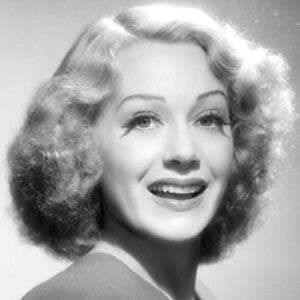
In the show:
Headstrong, talented and passionate, June appears in the form of “Baby June” and “Dainty June,” the two stage personas bestowed upon her by her mother. From birth, June is the apple of her mother’s eye and a natural-born star. An extremely gifted vocalist and dancer, she forms the center of the vaudeville act, which accentuates her youth in all its iterations. However, as June ages and is forced to continue playing the role of a young child to sustain their act, her frustration with her prescribed role grows. She dreams of being taken seriously as an actress and dancer and surpassing her cage as the “showbiz whiz.”
In real life:
June Havoc (1912-2010), born in Vancouver, Canada as Ellen Evangeline Hovick, was the member of the family upon whom all initial hopes of familial fame rested. From the time she could speak and walk, June danced and sang, even dancing on her toes at the age of 2½. This talent was quickly honed into the starring role in their vaudeville act, the entirety of which was built and billed around the character of “Baby June.” Despite her obvious talent and several professional offers, June didn’t receive formal training until her adulthood, as Rose believed that skills were either innate or could be learned by watching other acts on the circuit. Growing frustrated with the juvenile façade of “Baby June,” June rebelled at the age of 13 by eloping with one of the 17-year-old male dancers in the act. At this point, June cut ties with Rose and Louise, seeking the training and independence she hadn’t been afforded under her mother’s care.
June fiercely pursued her acting career, and successfully appeared in several movies, mostly comedies and musicals, the most celebrated of which was Rodgers & Hart’s Pal Joey, in which she played Gladys opposite Gene Kelly. She was also nominated for a Best Director Tony in 1964 for her work on Marathon 33. She divorced the dancer she had eloped with and settled into a series of marriages, none of which stuck, but one of which gave her a daughter. After a brief reconciliation in early adulthood, June and Louise fell out with each other again upon the publication of Gypsy: A Memoir, as June was displeased with how she was portrayed. The sisters finally reconciled in 1970 when Louise was diagnosed with terminal lung cancer. June died 40 years later at the age of 97.
Louise
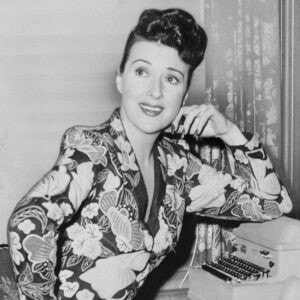
In the show:
Louise hides in the background of the vaudeville act and the family dynamic. Shy and used to existing in the shadows, Louise nonetheless dreams of a life in the spotlight. After June elopes with a chorus dancer, Louise is forced into leading a poor imitation of the original vaudeville act. But when Rose volunteers her to replace an ill performer in a burlesque act, Louise discovers her alternate ego of Gypsy Rose Lee. Stepping into all her charm, charisma and “gimmicks,” Gypsy surpasses both her mother and sister in fame and independence, entertaining us in every way.
In real life:
The real life of Gypsy Rose Lee (1911-1970), née Rose Louise Hovick, was even more fantastical than that of her fictional counterpart. A self-proclaimed “ecdysiast,” Gypsy was renowned for her legendary burlesque act, which brought a yet unseen sense of wit and class to the striptease. Born in Seattle, Washington in 1911, young Louise Hovick was an avid reader, trouping as many books as she could before the bottom of her trunk fell out from the weight. She was well known for being able to drop bits of quotations into everyday conversation, and in interviews was found to be a thoughtful, witty and well-spoken conversationalist. After June eloped in 1928, Rose compensated for Louise’s lesser dancing abilities by surrounding her with other young women who performed the complicated steps in her stead. This version of the act was booked into a burlesque club variety show. When one of the burlesque performers called in sick, Louise was volunteered by Rose as a replacement, initiating the first performance of her prolific career.
Louise originally adopted the name Gypsy Rose Lee as an attempt to conceal her burlesque performances from her extended family. As her fame grew, however, this name became synonymous with her independence and chosen identity. She married three times and had one son, Erik, who toured globally with her. She published several murder mysteries, along with her best-selling 1957 memoir, which became the basis of musical Gypsy. She attended the New York premiere of the musical with Erik in 1959. She died 11 years later of lung cancer, leaving Erik an estate worth the modern equivalent of over $4.5 million USD.
Herbie
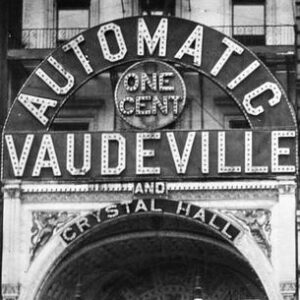
In the show:
Herbie is the steady, charming counterpart to Rose’s focused passion. A traveling salesman, he stays on mostly out of romantic interest in Rose, but also as the manager of the vaudeville act. He forms a strong relationship with Louise and June, providing a fantasy for the audience and characters of what stability and the perfect family could look like. After June elopes, Herbie sticks with Rose and June as a pillar of strength. Herbie is the unintended exchange Rose makes in her quest for familial stardom, and his loss is the symbol of everything good that has been sacrificed to her ambition.
In real life:
The charming Herbie of the show is an amalgamation of several real people in Gypsy Rose Lee’s life. Despite the moniker chosen by Sondheim, Styne and Laurents for the show, the only actual “Herbie” in Louise’s life was the owner of a theatre she worked on the vaudeville circuit. The character more closely resembles Sam Gordon, a salesman Rose met early in the girls’ vaudeville career. Gordon was regarded affectionately by the girls, and – though it was never public – he became romantically involved with Rose. Gordon and Rose had a tumultuous relationship, which often ended in vicious shouting matches, slammed doors and one of the pair claiming they would never come back. After one particularly venomous fight, Gordon left Rose – and the act – forever.
To learn more about Gypsy, visit Concord Theatricals in the US or UK.

Comedy Mysteries: Gasps, Laughs and Thrills

A Children’s Theatre Classic: An Interview with Snow White And The Seven Dwarfs Composer Michael Valenti

